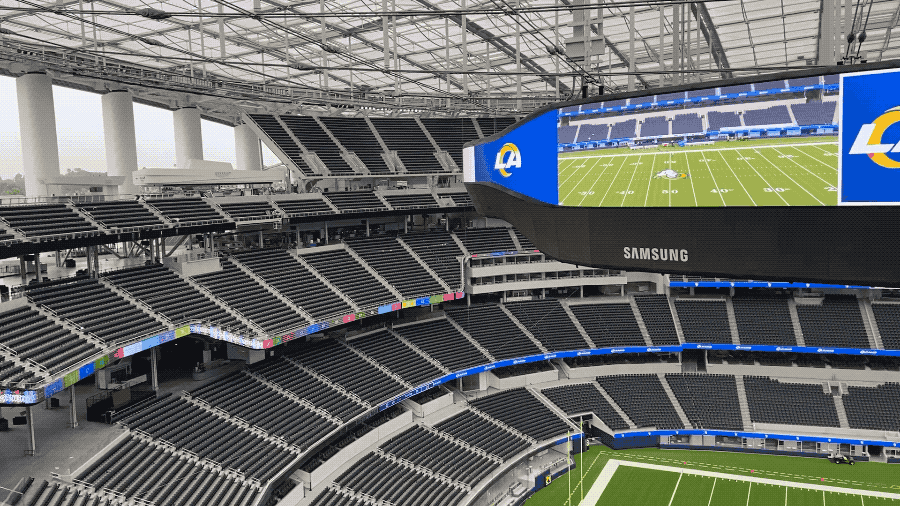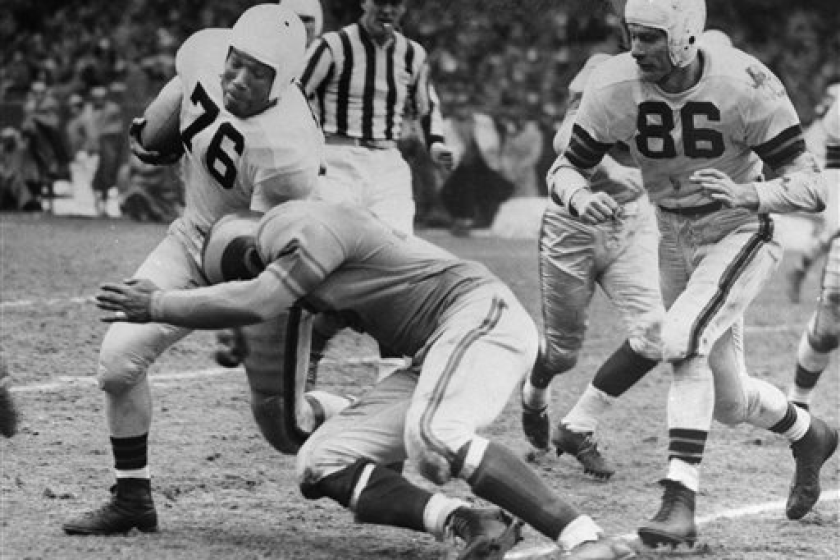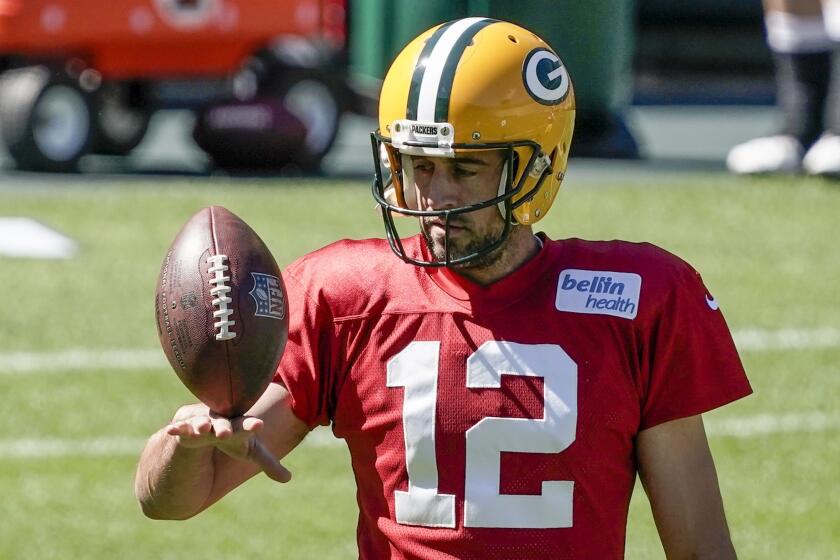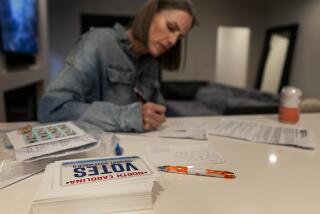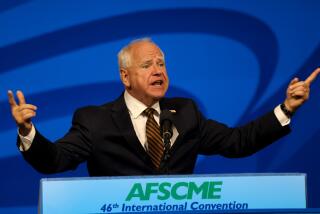Column: Kneeling is not enough. NFL players can show the way by voting
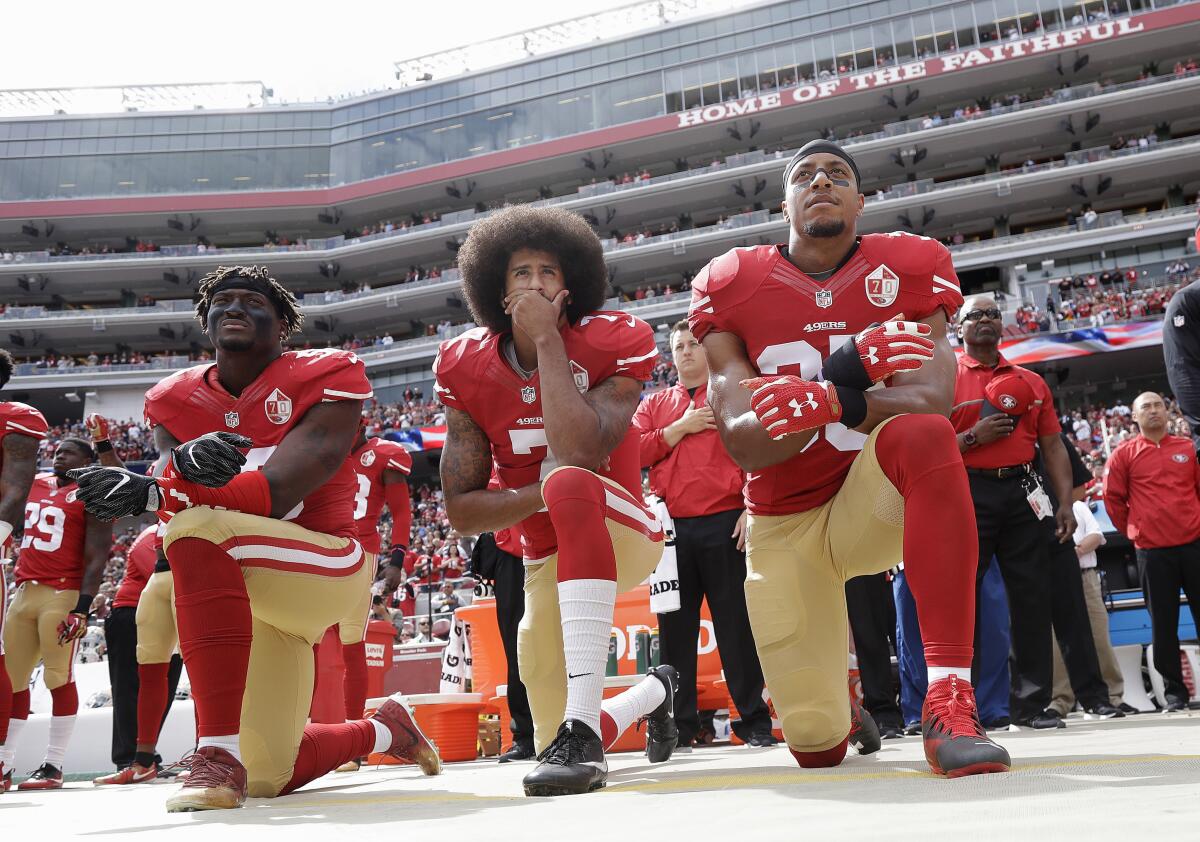
- Share via
In 2016, roughly 43% of eligible voters did not cast a ballot. For those keeping score at home, that’s about 100 million people. Among those not going to the polls that year was Colin Kaepernick, who was not registered to vote. In fact, reportedly Kaepernick never had been registered to vote. It was a perplexing revelation given the political lightning rod he had become since he began protesting social injustices during the national anthem. It also reeked of self-defeatism considering that reforms to the criminal justice system — something he was passionately advocating for — were on the 2016 ballot in California.
In covering this season of uprisings, I’ve heard a number of grass-roots leaders quote writer and activist Audre Lorde, who famously said “the master’s tools will never dismantle the master’s house.”
Perhaps by not voting, Kaepernick was expressing his lack of faith in the election process bringing forth substantial change. Maybe he was never interested in politics to begin with. Regardless of his rationale, one thing is abundantly clear: It wasn’t a good look.
SoFi Stadium, the NFL’s crown jewel, was the the culmination of Rams owner Stan Kroenke’s vision and the NFL’s desire to return to the L.A. market.
Similar to the shock of Kaepernick’s voting history, many were stunned to learn that reportedly up to 80% of NBA players were not registered to vote upon entering the bubble. Imagine wearing slogans on your jersey, stopping the playoffs, demanding owners do more to foster change all while abdicating a critical aspect of your role in this fight.
When athletes decide to use their platform to draw attention to crippling societal ills — such as systemic racism within the criminal justice system — not being registered to vote undermines gravitas. And now that Commissioner Roger Goodell has appeared more willing to use the influence of the NFL to address some of the issues Kaepernick was pointing out four years ago, NFL players cannot be caught with their proverbial pants down. National Football League Players Assn. officials told me the union did not have concrete numbers reflecting how many of their members were registered to vote. However, it’s hard to imagine the numbers being significantly better than those of the NBA considering the NBA has been actively engaged in the social justice space much longer than the NFL. And while exercising one’s right to vote is a personal choice, vocal athletes muzzle themselves by opting out of the democratic process.
If a player has an agent who’s not checking for his voter registration card, that player needs a new agent. If a player is on a team that’s not checking for his voter registration card, that player needs to ask the team’s community relations department why. If a player is part of a union that’s not checking for his voter registration card, leadership needs to reevaluate what it means to look out for the best interest of its members.
A look at firsts achieved by Black players, coaches and officials in the modern era of the NFL.
Four years ago, when Kaepernick began his protest, like-minded NFL players who were not registered to vote was disappointing. In 2020 — the year of uprisings in NFL cities, the year of the killings of Breonna Taylor and George Floyd, the year we said goodbye to John Lewis — to not be registered to vote is downright insulting. Yes, Lorde said the “the master’s tools will never dismantle the master’s house,” but one must remember this is a quote from an essay discussing feminism, not voting. Lorde highlights the role fear and silence have on oppressing the oppressed. Replace the word “women” with “NFL players,” and that passage reads:
“Those of us who stand outside the circle of this society’s definition of acceptable [NFL players]; those of us who have been forged in the crucibles of difference — those of us who are poor, who are lesbians, who are Black, who are older — know that survival is not an academic skill. It is learning how to take our differences and make them strengths. For the master’s tools will never dismantle the master’s house. They may allow us temporarily to beat him at his own game, but they will never enable us to bring about genuine change. And this fact is only threatening to those [NFL players] who still define the master’s house as their only source of support.”
As we inch closer to election day, there is little doubt the NFL once again will find itself in partisan crosshairs. Whether or not players kneel during the anthem, the league has made enough statements in support of Black Lives Matter to draw the attention of a president who already has called NFL protestors “sons of bitches.” What he has to say is important in the sense that he represents a worldview that is supported by a lot of Americans.
Now that Tom Brady has left New England for Tampa, which quarterback has played the longest with his current team?
And when that inevitable criticism comes raining down, Goodell, owners and coaches will be called upon to respond. Slick PSAs won’t be good enough of an answer, and statements about diversity will garner more eyerolls than measurable impact. The moment will call for unequivocal support of the players who might want to use their platform to say something about the injustices they see. But whatever the players want to say and however they want to say it, they must understand voter registration is a bullhorn designed to amplify their message.
It also encourages their supporters to follow suit. Athletes might have a number of entry points into the social justice space, but for many fans, voting is their only door. My hope going into the season is NFL players register en masse to show them the way.
More to Read
Go beyond the scoreboard
Get the latest on L.A.'s teams in the daily Sports Report newsletter.
You may occasionally receive promotional content from the Los Angeles Times.
